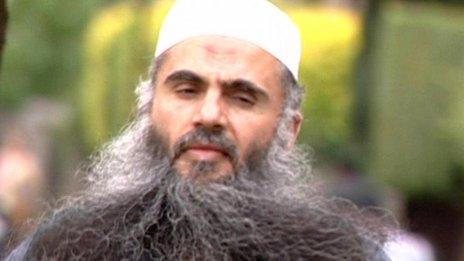Abu Qatada case: Judges to hear bail application
- Published
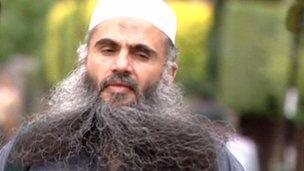
Abu Qatada has been in the UK for two decades
Immigration judges are to decide whether radical cleric Abu Qatada should be released from custody at a hearing this week.
His bail application is due to be heard on Friday, the Judicial Office said.
Abu Qatada, whom the government wants to deport to Jordan to face terror charges, was arrested in March for alleged bail breaches.
The breach concerned the use of communications equipment at his home and he is currently in Belmarsh prison.
Scotland Yard said Abu Qatada, who was living at a secret location with his family before his arrest, was being investigated over suspected extremist material obtained from a range of sources, including online.
A Home Office spokeswoman said: "We will strongly resist this application to release Qatada on bail. We believe he poses a real risk to national security and should remain behind bars."
The bail hearing, before the Special Immigration Appeals Commission (Siac), is part of a long-running legal battle. Abu Qatada is fighting deportation to Jordan, where his lawyers claim he would not get a fair trial.
Last year, Siac, which adjudicates on national security-related deportations, ruled Abu Qatada should not be removed from the UK because of fears that evidence obtained through torture would be used against him in Jordan.
The government lost an appeal against the ruling and it also failed in its bid to get the case referred to the Supreme Court. Home Secretary Teresa May will now apply directly to the Supreme Court for permission to challenge the ruling.
Last month, the government signed a mutual assistance treaty with Jordan - including guarantees on fair trials. Home Secretary Theresa May says she believes the treaty will provide the courts with assurance that Abu Qatada would face a fair trial in Jordan.
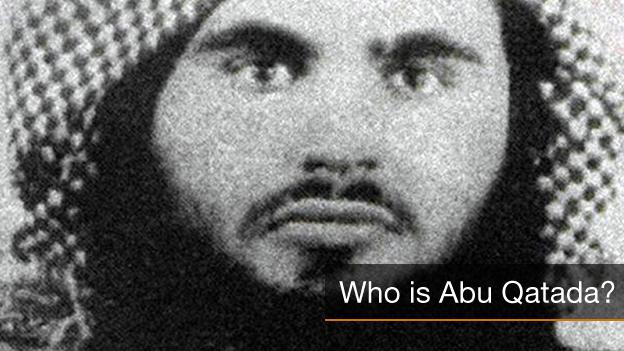
Abu Qatada was born in Bethlehem in 1960 and spent his early life in Jordan. He fled to Pakistan in 1989 claiming political persecution and eventually arrived in the UK in 1993. Abu Qatada was part of a wave of Islamists who sought refuge in the UK during the 1980s and 90s, often exiled from the Arab regimes they were trying to overthrow.

Abu Qatada emerged as a key voice in the Islamist movement in London, which advocated strict Islamic government in Muslim countries and armed struggle against despots and foreign invaders. His preachings and ideas won him influence among Islamist groups in Algeria and Egypt during the 1990s. He was tried and found guilty in his absence of terrorism offences in Jordan in 1999.

By 2001 fears were growing about Abu Qatada's hard-line views. He endorsed suicide attacks in a BBC interview and was questioned in connection with a German terror cell. Copies of his sermons were found in the Hamburg flat used by some of the 9/11 attackers and Spanish judge Balthazar Garzon described him as the "spiritual head of the mujahideen in Britain". In December 2001, Abu Qatada disappeared and became one of the UK's most wanted men.
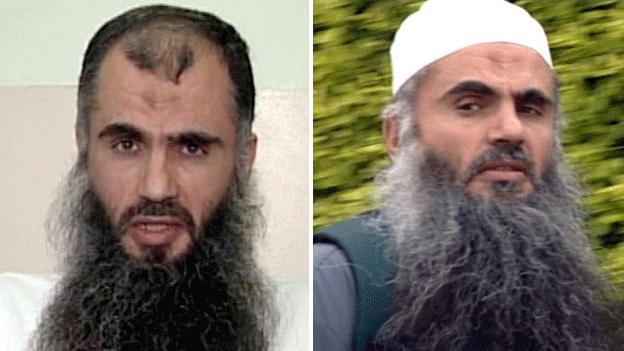
In October 2002 Abu Qatada was arrested and detained without charge. He was released in 2005 and put under strict house arrest, but months later was arrested under immigration rules and moves began to deport him to Jordan to face retrial on the charges he had been convicted of six years earlier. In 2007 he lost his immigration case, but the Court of Appeal later ruled that deportation to a regime which uses torture - ie Jordan - would breach his human rights.
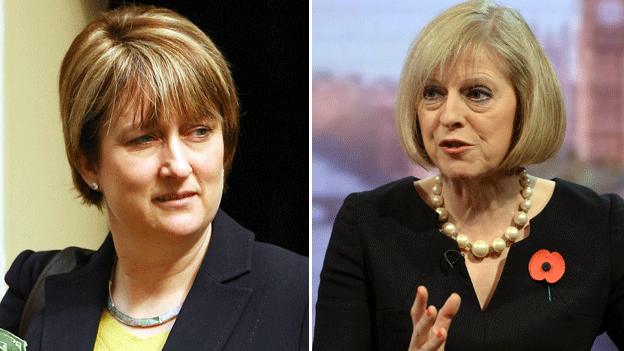
The Court of Appeal ruling was overturned by the Law Lords in early 2009, and the then Home Secretary, Jacqui Smith (L), signed a deportation order. Abu Qatada then appealed to the European Court, which eventually ruled that he could not be deported while the risk of torture remained. In 2012 Home Secretary Theresa May (R) pressed ahead with deportation, but this was blocked amid a row over the appeal deadline.
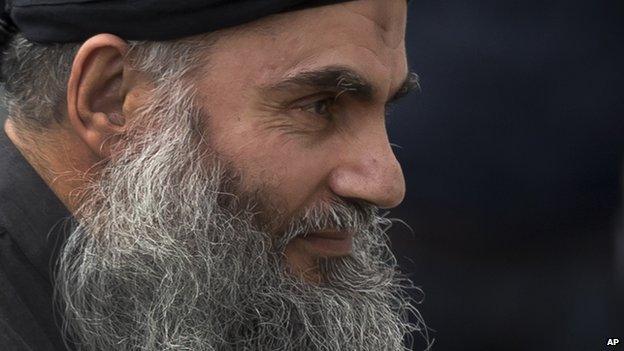
In November 2012 Abu Qatada was released from prison once more after a UK court backed his appeal on the grounds that witness evidence obtained by torture could be used against him at trial in Jordan. That was a disastrous blow to the Home Office because it meant the only way the deportation could happen would be if Jordan changed its system to ensure torture-tainted evidence could not be used.
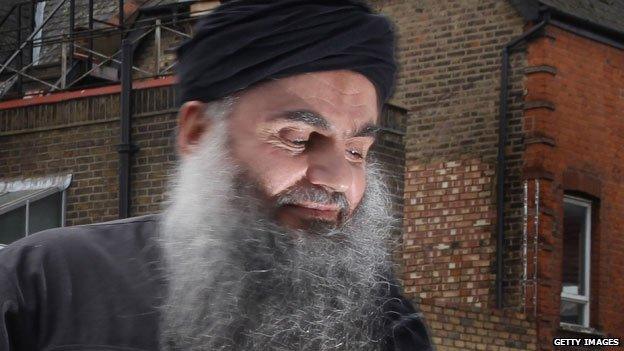
Abu Qatada was then returned to prison on 9 March 2013 after an alleged breach of his bail conditions - but this deportation was still blocked. Weeks later, Home Secretary Theresa May announced a new UK-Jordan treaty to improve co-operation in criminal investigations. That treaty included a guarantee of a fair trial free of torture-tainted evidence for anyone sent back to Jordan. Abu Qatada's lawyers announced he would now return to Jordan.
- Published24 April 2013
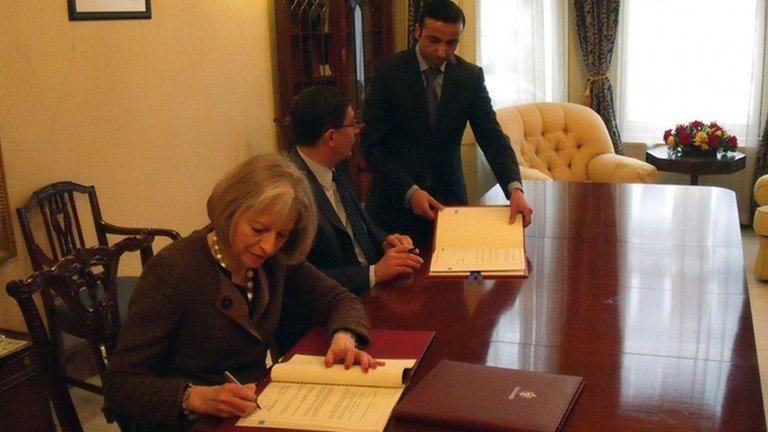
- Published24 April 2013
- Published23 April 2013
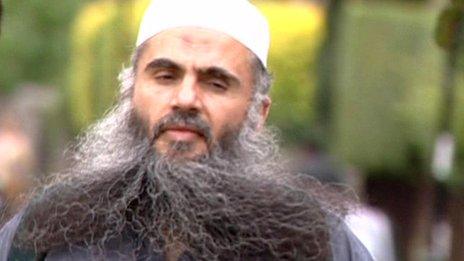
- Published10 May 2013

- Published26 June 2014
